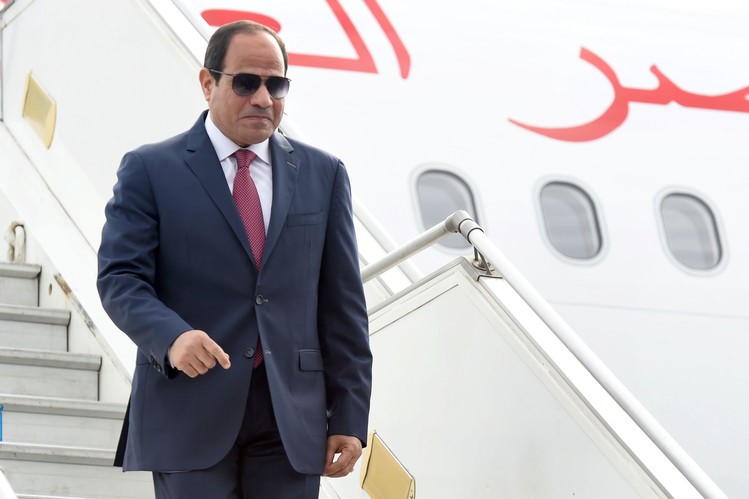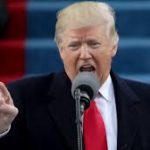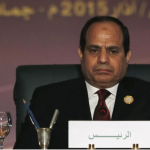By Yaroslav Trofimov – Wall Street Journal –
A key reason for his honeymoon is the extraordinary vagueness of his comments about the Middle East.
It is hard to find a Middle Eastern official betraying signs of anxiety over what President-elect Donald Trump will do once in office. From Egypt to Turkey to Saudi Arabia to, unsurprisingly, Israel, government leaders delight in discussing what an improvement the Trump presidency is likely to be over President Barack Obama ’s record in the region.
A key reason for this honeymoon is the extraordinary vagueness of the views expressed by Mr. Trump about the Middle East’s many intricate and intertwined conflicts, some of them festering for decades. This intellectual vacuum, in turn, has allowed many regional leaders to imagine that a Trump administration will take their side in the struggles that are tearing the Middle East apart.
“Everybody is projecting,” said Fouad Siniora, the former prime minister of Lebanon and the leader of the Sunni bloc in its parliament. “That’s because they don’t have real clarity of what is the position of the next administration of the United States. They are hopeful and they are expecting.”
The danger of this situation, of course, is that the Middle East’s politics is largely a zero-sum game—and that some of these countries will be inevitably disappointed, and will react accordingly, sometimes in ways that hurt their neighbors and the U.S.
The few positions that Mr. Trump and his aides articulated on the Middle East are often mutually contradictory. In Syria, he has spoken about aligning with Russia and even the regime of President Bashar al-Assad against Islamic State—statements that were greeted with joy by regime officials in Damascus. At the same time, he pledged a more confrontational policy against Mr. Assad’s main supporter Iran—a position that has given hope to the Syrian rebels and to their backers in Saudi Arabia.

Egyptian President Abdel Fattah Al Sisi hopes that the U.S. under Mr. Trump would join the country’s global campaign against the Muslim Brotherhood. PHOTO: PRAKASH SINGH/AGENCE FRANCE-PRESSE/GETTY IMAGES
“It’s difficult to see how these pieces might add up,” said Brian Katulis, a senior fellow at the Center for American Progress.
Then there is Israel. So far, it appears that Mr. Trump, who named a backer of Jewish settlements in the West Bank as U.S. ambassador, would be a strong supporter of Prime Minister Benjamin Netanyahu. Yet a Washington embrace of Israel’s extreme right may actually weaken Mr. Netanyahu’s ability to maneuver at home, and could precipitate renewed violence with the Palestinians. In any case, the last thing any Israeli government wants is a return of Syrian regime forces and their Iranian allies (and Hezbollah) to the vicinity of Golan Heights.
In Egypt, government officials admire Mr. Trump’s aversion to Islamists of all stripes, and hope that he would join their global campaign against the Muslim Brotherhood, the main domestic foe of President Abdel Fattah Al Sisi ’s regime—while also maintaining the current billions of dollars in annual aid.
Outlawing the Brotherhood, however, would strain U.S. relations with Turkish leader Recep Tayyip Erdogan, whose ruling party hails from Islamist roots and who shelters fugitive Egyptian Muslim Brotherhood leaders in Istanbul.
Mr. Trump, before the election, praised both presidents and, unlike the Obama administration, refused to condemn widespread human-rights abuses in either country.

The government of Turkish President Recep Tayyip Erdogan wants Mr. Trump to extradite Mr. Erdogan’s Pennsylvania-based nemesis, cleric Fethullah Gulen. PHOTO: ADEM ALTAN/AGENCE FRANCE-PRESSE/GETTY IMAGES
Turkish officials say they hope Mr. Trump, once in office, will extradite Mr. Erdogan’s Pennsylvania-based nemesis, cleric Fethullah Gulen, and end American support for Syrian Kurdish militias affiliated with the PKK Kurdistan Workers Party, a group designated as terrorist by Washington and Ankara alike that is waging war on the Turkish state.
“The government in Ankara has positive expectations about Trump, especially concerning Ankara’s struggle against the PKK—an issue that has created so many problems in the U.S.-Turkish relations,” said Ali Bayramoglu, a Turkish commentator and a professor at Istanbul Kultur University.
It is likely these expectations will be dashed considering the priority that Mr. Trump is likely to place on combating Islamic State. The Syrian Kurdish militias, already extensively aided by the U.S., represent the most viable force able to seize the extremist group’s de facto capital of Raqqa.
“Nobody really knows what President Trump’s policies in the Middle East will be, except for taking the fight to ISIS, which is a major priority,” said Andrew Tabler, a Syria expert at the Washington Institute for Near East Policy. In this perspective, cutting or reducing American backing for the Syrian Kurds would be the last thing the new administration may do, he added: “If you do that, you’ll lose so much territory to ISIS almost immediately.”
___________________
http://www.wsj.com/articles/in-mideast-leaders-want-donald-trump-to-be-their-friend-1484560806





